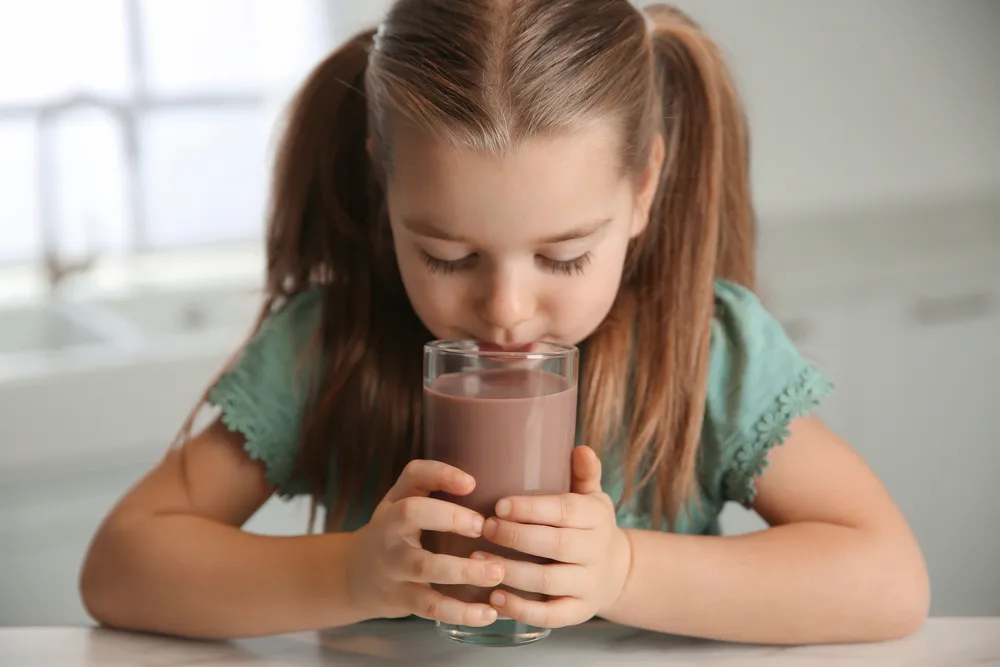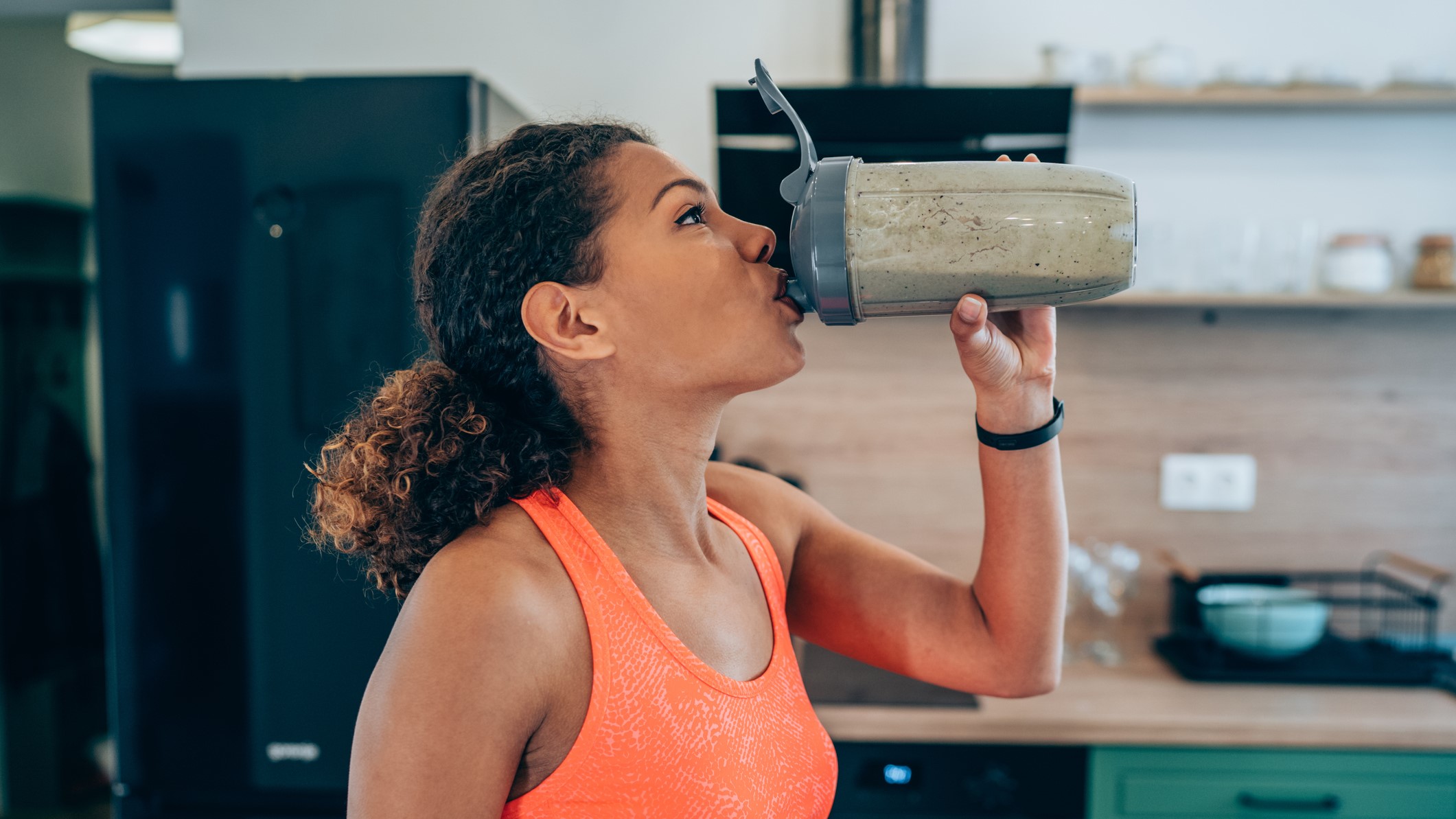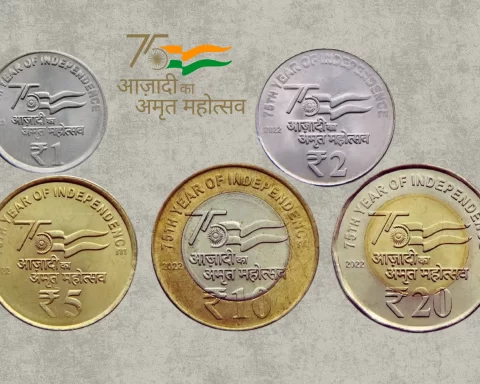Introduction
As a parent, you want to ensure your child is getting the right nutrition to fuel their growth and development. One growing trend is the use of protein powders for kids, especially for picky eaters, active children, or those with specific dietary restrictions like vegan or vegetarian diets. But are these supplements really necessary, and if so, how do you choose the best option?
In this comprehensive guide, we’ll explore the benefits of protein powders for kids, what to look for in a product, and which brands stand out. Whether you’re wondering about protein powder safety or looking for the best protein powder for kids, this guide has you covered.
Understanding Your Child’s Protein Needs
Before reaching for a protein supplement, it’s important to understand your child’s daily protein needs. Protein is essential for muscle growth, immune support, and overall development. However, most children can meet their daily protein requirements through whole foods.
Protein Requirements by Age:
- 1-3 years: 13g/day
- 4-8 years: 19g/day
- 9-13 years: 34g/day
- 14-18 years (girls): 46g/day
- 14-18 years (boys): 52g/day
Children involved in sports or going through growth spurts may need slightly more. However, it’s essential to focus on whole food sources before turning to protein powders.
Protein Sources from Whole Foods
Before introducing supplements, remember that many common foods are rich in protein. Prioritizing these foods can help ensure your child gets a balanced diet:
- Animal-based proteins: Chicken, eggs, fish, milk, yogurt.
- Plant-based proteins: Lentils, beans, tofu, peanut butter, quinoa.
Example meal plan:
- Breakfast: Scrambled eggs with toast (8g protein).
- Lunch: Peanut butter sandwich (12g protein).
- Dinner: Grilled chicken with vegetables (20g protein).
Signs Your Child May Need Protein Powder
Most kids can meet their protein needs through diet, but certain situations may call for a supplement.
Whey Protein Powder May Help:
- Picky Eaters: If your child refuses certain food groups, like meat or beans, they might not be getting enough protein.
- Example: A child with Avoidant/Restrictive Food Intake Disorder (ARFID) who doesn’t consume a variety of foods may benefit from supplements.
- Young Athletes: Physically active children may need extra protein to support muscle growth and recovery.
- Dietary Restrictions: Vegan or vegetarian children can struggle to get enough complete proteins from plant sources.
- Health Conditions: Conditions like growth disorders or digestive issues can impact nutrition absorption, making protein powders necessary under medical guidance.
Product: Troovy Butterscotch Nutri Milk Mix (Ages 3-6)
Why it works: Made with 13 grains and millets like ragi and quinoa, it provides 20% of daily protein needs. Naturally sweetened with jaggery, it’s a great choice for picky eaters who need a nutrition boost without added sugar.
Types of Protein Powders for Kids
When selecting a protein powder, it’s crucial to choose a product that meets your child’s unique needs. Here are the main types of protein powders available for children:
- Whey Protein: A fast-digesting protein that supports muscle recovery and growth. Ideal for active kids.
- Plant-Based Protein: Made from sources like pea protein or soy, it’s suitable for vegan or dairy-allergic children.
- Casein Protein: A slow-digesting protein that provides a steady release of amino acids over time.
- Collagen: Though not a complete protein, it’s sometimes added for its joint and skin benefits.
Product: Nakpro Gen-Z Protein Powder (Ages 13+)
Why it works: Offers 15g of protein per serving from whey protein concentrate, isolate, and casein. It’s formulated with added vitamins, minerals, and probiotics to support the growth of teenagers, especially those with busy, active lifestyles.
Choosing the Right Protein Powder: What Parents Should Know
When selecting the best protein powder for your child, there are several key factors to consider to ensure you’re making a safe and beneficial choice.
Also Read-
- How to Choose the Best Protein Powder for Your Health and Fitness Goals
- MuscleBlaze vs Optimum Nutrition: Which Whey Protein is Best?
- Top 5 Protein Brands To Buy On Amazon In 2024
Ingredient Checklist:
- Natural ingredients: Look for products free of artificial flavors, preservatives, and refined sugars.
- Non-GMO and Organic: Whenever possible, choose powders with non-GMO ingredients that are certified organic.
- No Allergens: If your child has allergies (e.g., dairy, soy), select products that are clearly labeled allergen-free.
Product: Groviva Child Nutrition Supplement (Ages 2-12)
Why it works: Formulated to meet the nutritional needs of Indian children, Groviva offers a blend of vitamins and minerals that support growth, immunity, and cognitive function. It’s available in flavors that appeal to kids like chocolate and mango.
Serving Sizes and Safe Consumption
One of the most important considerations when using protein powders for kids is ensuring they consume the correct serving size for their age. Overconsumption can lead to unnecessary weight gain or even strain on the kidneys.
Tips for Safe Use:
- Age-appropriate serving sizes: Always follow the product’s recommended dosage based on your child’s age.
- Introduce slowly: Start with half a serving and observe how your child responds, especially if they have a sensitive stomach.
Incorporating Protein Powder into Your Child’s Diet
Protein powder doesn’t have to be boring! Here are some creative and delicious ways to include it in your child’s diet:
- Smoothies: Blend with fruits, milk, or yogurt for a delicious protein-packed snack.
- Protein pancakes: Mix protein powder into pancake batter for a high-protein breakfast.
- No-bake protein snacks: Combine powder with oats, peanut butter, and honey to create energy bites.
Product: Amway Nutrilite Kids Drink (Chocolate Flavor)
Why it works: This multivitamin drink is 100% vegetarian and provides a complete blend of vitamins and minerals. It’s an easy way to add nutrition to your child’s daily routine while being tasty enough for picky eaters.
Do Kids Really Need Protein Powder?
The answer to this question is, it depends. While most children can meet their protein needs through whole foods, certain situations may justify the use of protein powder.
Key Takeaways:
- Picky eaters or kids with dietary restrictions may benefit from supplements.
- Active children or athletes may require extra protein for muscle recovery.
- Supplements should always be used alongside whole foods, not as a replacement.
Best Protein Powders for Kids: Brand Recommendations
If you’re considering adding a protein powder to your child’s diet, here are some of the best options to consider:
Troovy Butterscotch Nutri Milk Mix (Ages 3-6)
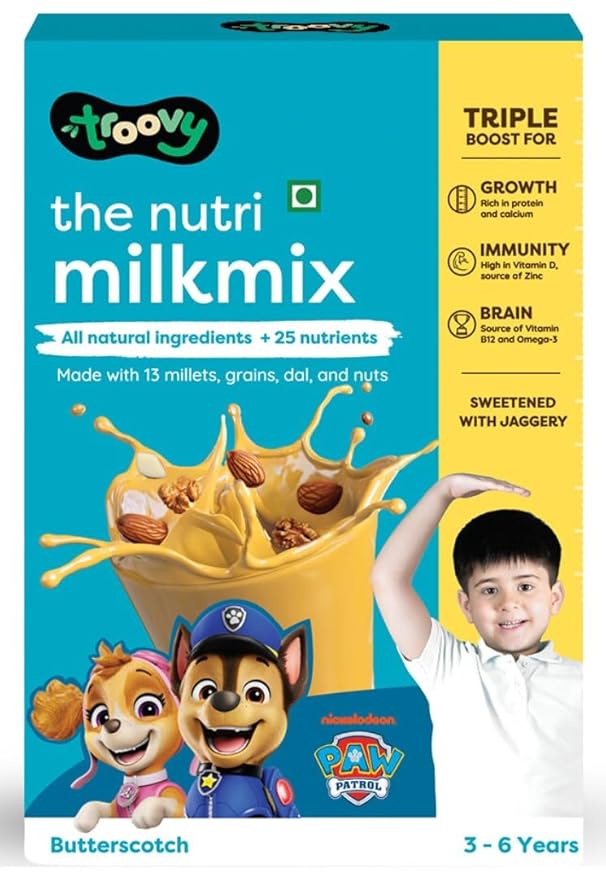
- 13 millets & grains, naturally sweetened with jaggery, provide 20% of daily protein needs.
- Rich in essential vitamins and minerals, supporting overall growth and development.
- No artificial flavors or preservatives, ensuring a clean, healthy choice for younger children.
- Easy to digest formula, perfect for young, developing stomachs.
Nakpro Gen-Z Protein Powder (Ages 13+)
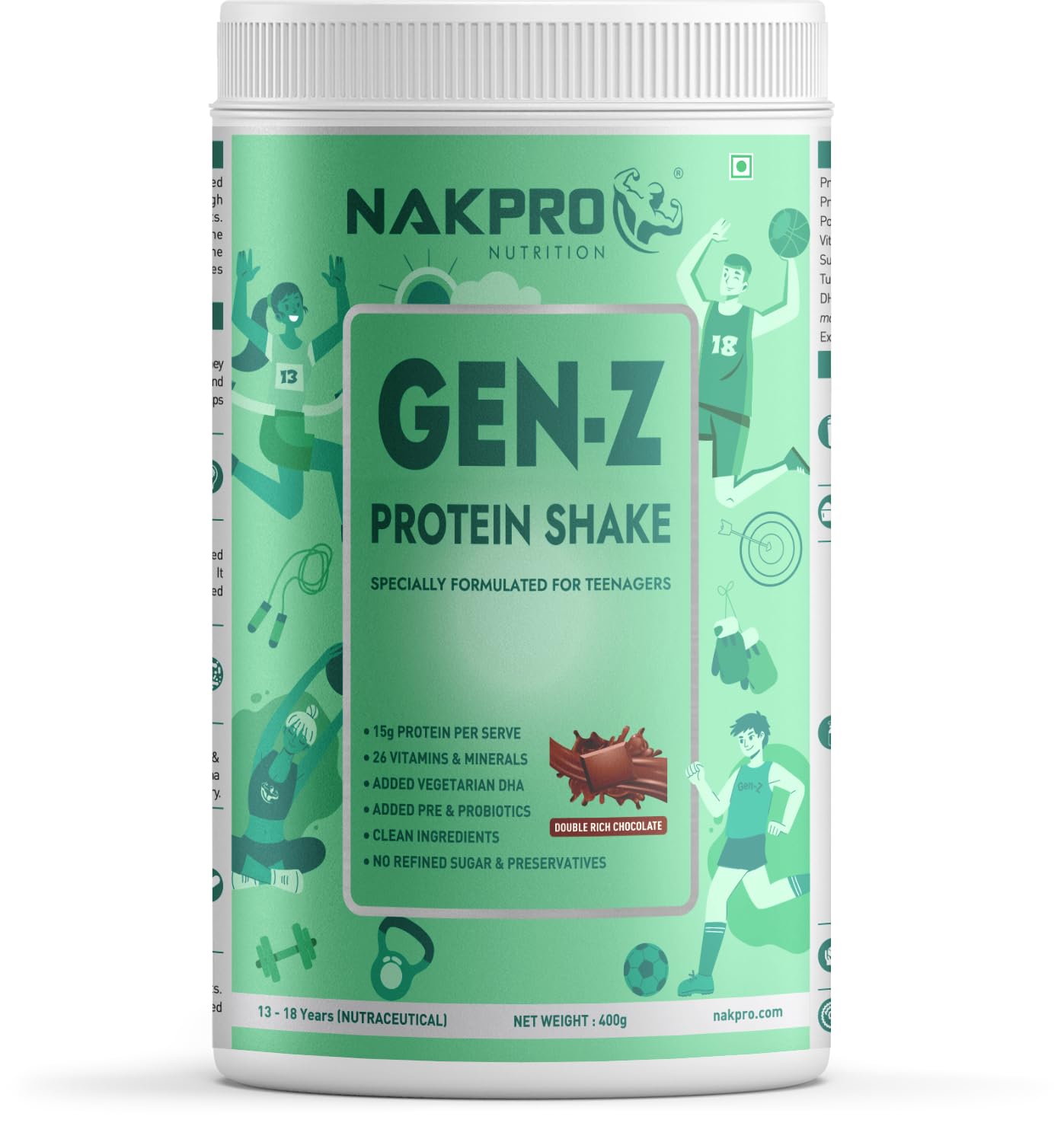
- Whey protein blend with added probiotics to support healthy digestion and boost immunity.
- Enriched with ashwagandha and turmeric, which help reduce stress and promote cognitive function.
- High in fiber for healthy digestion and gut health, keeping teens energized throughout the day.
- Fortified with 26 vitamins and minerals, including calcium and vitamin D for strong bones and overall physical development.
Pediasure 7+ (Ages 7-14)
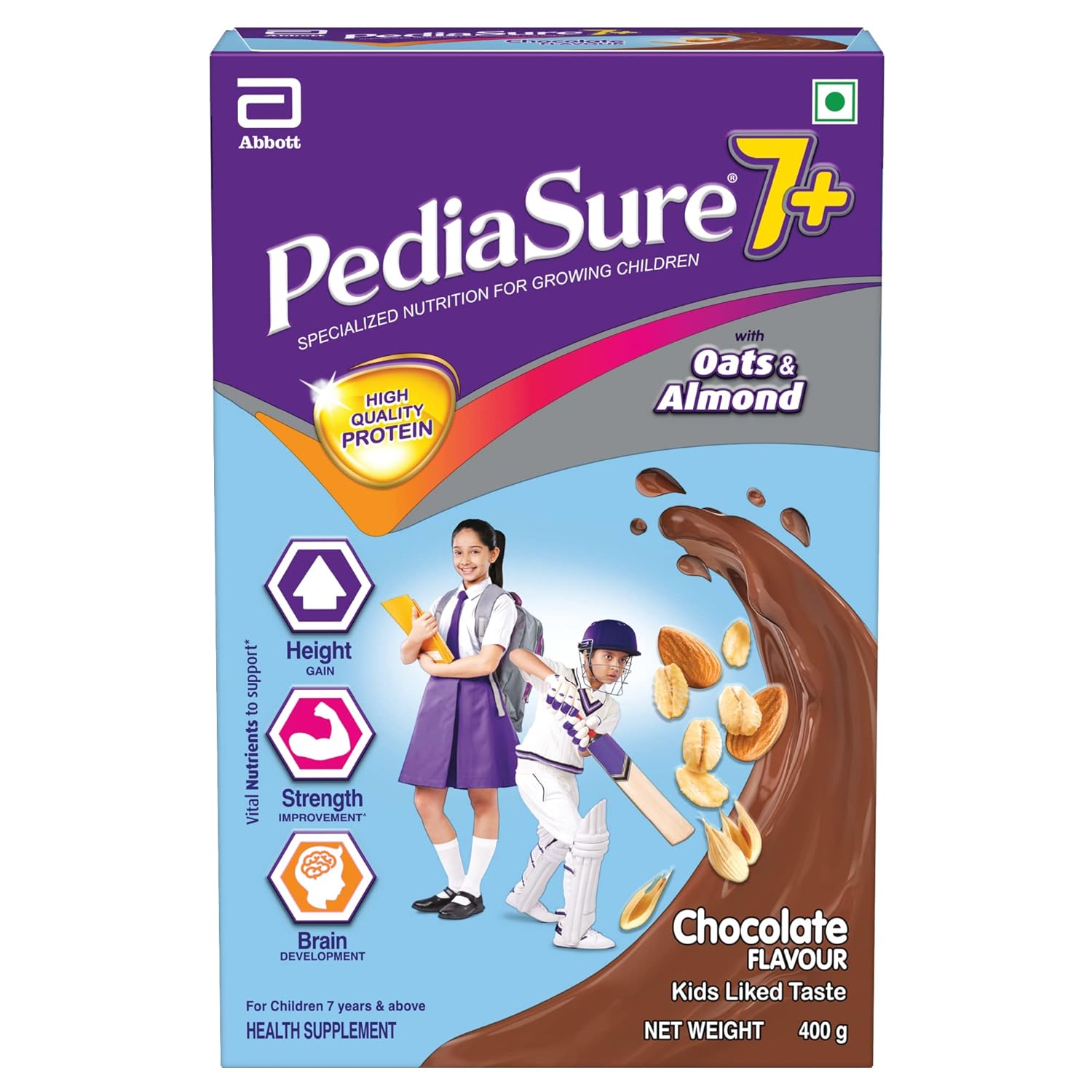
- Supports height, muscle, and brain development with high-quality ingredients like protein, calcium, and folic acid.
- Scientifically tested formula, designed to meet the needs of growing children during their second growth spurt.
- Includes oats and almonds for additional fiber and healthy fats, helping with energy and concentration.
- Boosts the immune system with essential nutrients like zinc and vitamin C, protecting against common illnesses.
Groviva Child Nutrition Supplement (Ages 2-12)
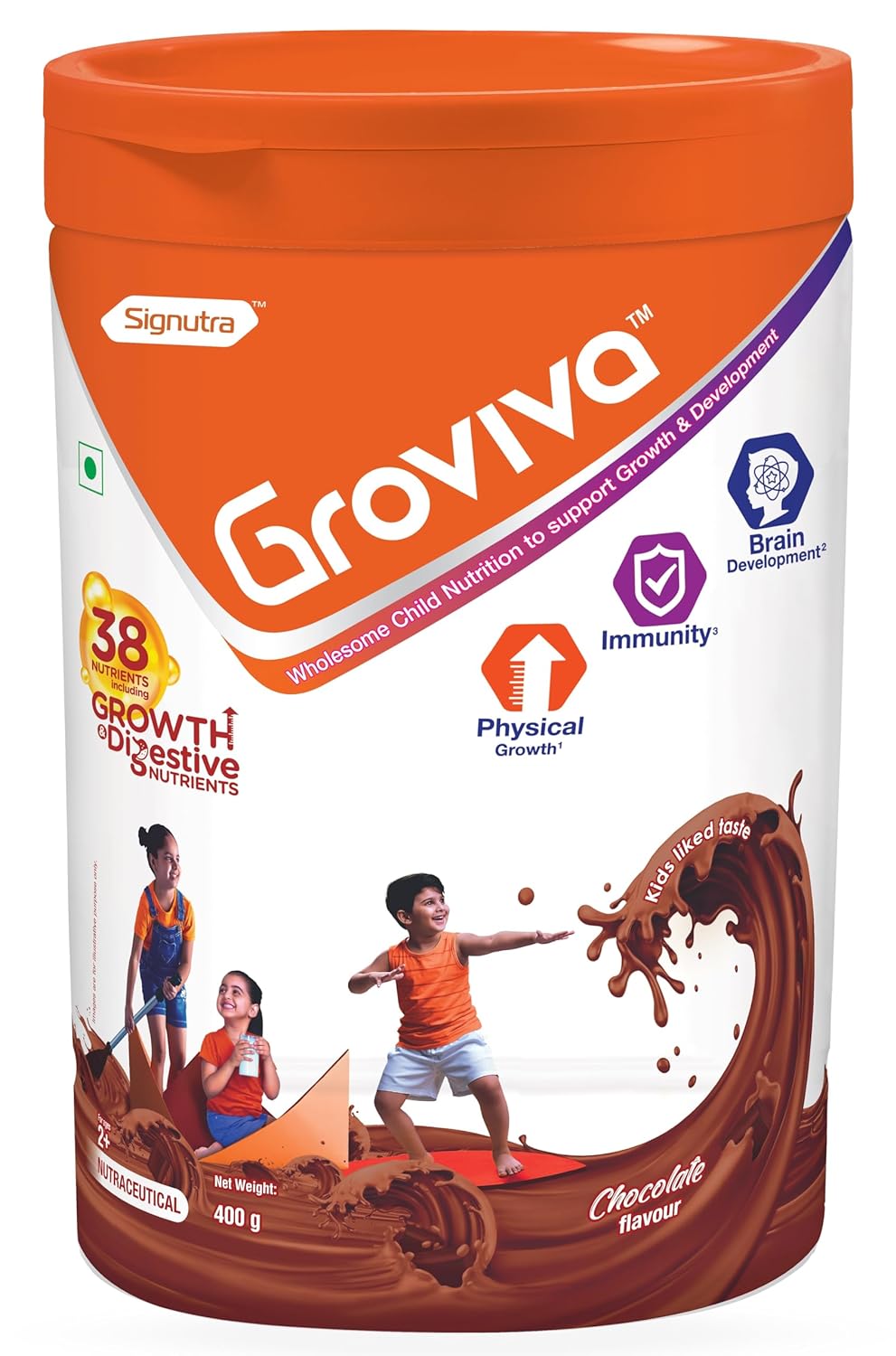
- Certified with essential nutrients like protein, iron, calcium, and DHA for growth and cognitive development.
- Formulated to meet the nutritional needs of Indian children based on ICMR guidelines.
- Available in kid-approved flavors, such as chocolate, vanilla, mango, and strawberry, making it easy to incorporate into meals.
- Supports gut health with prebiotics and fiber, promoting healthy digestion.
Amway Nutrilite Kids Drink (Chocolate Flavor)
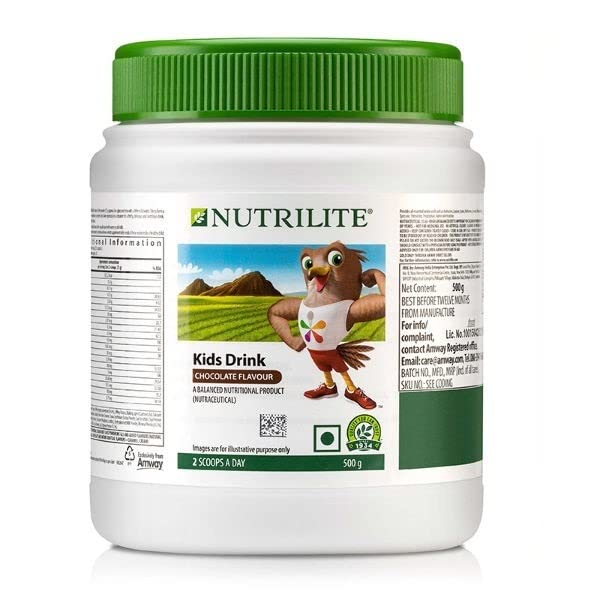
- 100% vegetarian formula with a complete blend of vitamins and minerals.
- A daily multivitamin and multimineral supplement, perfect for overall health and development.
- Rich in antioxidants that help support the immune system and protect against oxidative stress.
- Easy to mix and has a delicious chocolate flavor, making it a favorite among kids while providing essential nutrition.
Conclusion: Finding the Right Balance
While protein powders for kids can be beneficial in certain cases, whole foods should always be the first source of nutrition. If you’re considering adding a supplement to your child’s diet, consult with a pediatrician to ensure it meets their unique needs.
Protein supplements should be seen as a tool to fill gaps, not a replacement for real meals. With the right choices, you can support your child’s growth and development in a healthy, balanced way.

